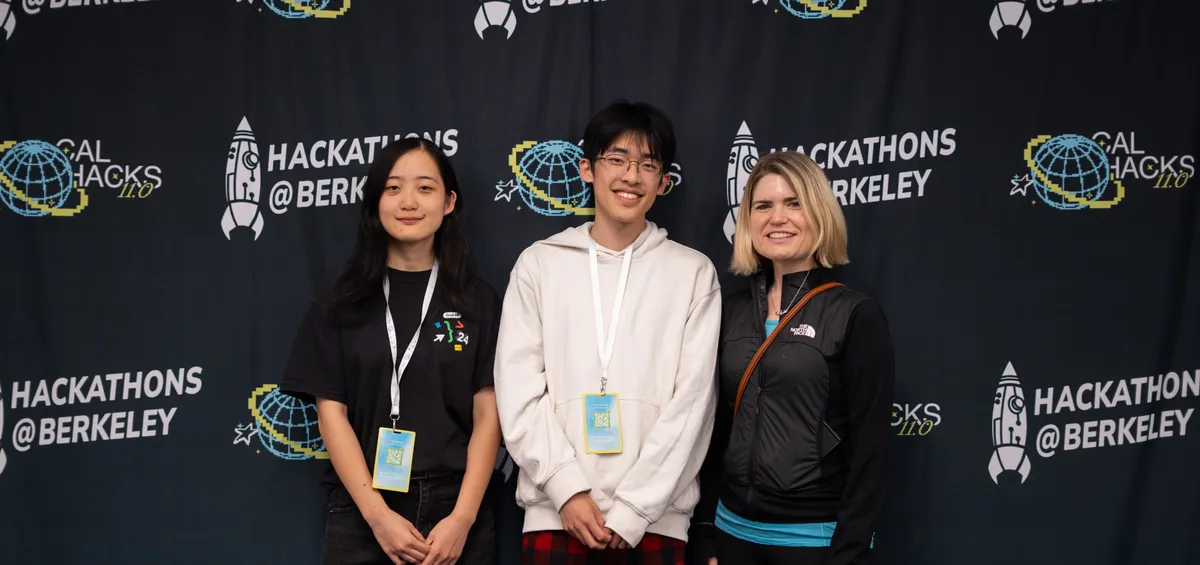What are Hackathons?
Hackathons are typically 24-48 hour competitions where contestants create a project based on the hackathon “tracks”. These are essentially categories you can win in (e.g. AI track winners would have the best use of AI), and are often sponsored by companies who want to create some interest in their field.
So, in an effort to network and upskill, I attended 4 hackathons and 1 gamejam during my sophmore year. Here’s some of my thoughts as someone who won prizes in all of them.
Is it worth it to participate in a hackathon?
The short answer: Probably not, but definitely try one out first.
Often times, people say that hackathons is a fun good time to network and build something cool! This could be true, as you could have a good time enjoying the snacks and company of likeminded people. However, for me, hackathons were a marathon of repeatedly making bad design decisions on 3 hours of sleep all for the sake of delivering an MVP capable to demonstrating our “amazing idea”.
On the topic of networking, I found it to be pretty unsatisfactory. If the hackathon you are attending is big enough to have some nice sponsors, it is crowded and is a pretty poor environment to create any meaningful connections in my opinion. Personally, I’d pass.
So, at the end of the day, it really does boil down to what you make of it. And what made it worth it for me, was walking away from the warzone with some prizes stuffed in my bags.
What prizes? Here’s the bounty I personally won after splitting the goods with my teammates:
- 2 Ipads
- Assorted Google Merch ($600 in value)
- $200 in crypto
- wireless headphones
- bone conduction earbuds
- various free subscriptions
 a stack of four ipads from my first hackathon
a stack of four ipads from my first hackathon
Some tips for winning prizes in Hackathons
I won at least 1 prize in every hackathon so far. Three of these I would consider to be a small hackathon, with only a few hundred contestants, whereas the biggest one I participated in had around 3000 participants at the venue.

1. Ideation
This is the most important part. I know people who have built amazing technically challenging projects, only for judges to not really see the value of it.
I would even say that good ideation will get you 70% of the way there. Having a good idea with a scrappy half broken MVP is better than a polished MVP with a bad idea. My teams usually spend up to half of the first day just generating ideas, grading them using a rubric, and then finally picking a winner.
But what if you don’t like the idea that scores the best? Honestly, if you have teammates that see the vision, really do try your best to understand exactly what they see and hype yourself up. You need to all be aligned with the same goal.
2. Your stack / Hardware?
Everyone can make a React Firebase fullstack application. All of this is pretty trivial to implement and it will be cringe if you try to present any of these technologies at depth during judging. Just mention that you used X technology, and move onto the juicy bits.
Don’t get me wrong, do USE these technologies because they are easy to deploy, but don’t show them off to be what they’re not (technically challenging or impressive). If your app needs a database, then go implement Firebase into your app in 20 minutes and then focus on something else that is actually interesting!
Lastly, when considering your stack, something that I always try to get my teams to do is to make something that judges can interact with. A live demo where they can interact with the project is amazing. Simply using hardware (arduino, raspberry pis) will also set you apart from the plethora of fullstack apps. I still think about how one of my competitors at CalHacks 11.0 used hardware to capture brain waves as their interface. It just simply makes things interesting!
3. Polish and Presentation
Make your project look good! Every project I’ve worked on has had one member who dedicated several hours on the logo, slides, maybe demo videos, and designing our “elevator pitch” to most efficiently and succinctly convey the context of the project to the judges.
As an example, my team used computer vision to index items inside of a fridge. After some processesing, it populated a dashboard for users to see recipes, calories, and expiration dates. We then pitched this as a good way to reduce food waste, which it honestly is!
On top of creating that dashboard, one of our members created this 3D model that would reflect whether the door is open or not and what common items are inside of it. This doesn’t solve any problems, but it looks cool and contributes to that WOW factor. If it’s cool enough, the judges will momentarily forget to ask “why” a feature needs to be there.
4. Be ready to wear many hats
My role during each hackathon changed wildly. I’ve done frontend, backend, hardware, and even just marketing. This is probably the fun part, as you get to try all sorts of different disciplines.
Conclusion
If you are a student who hasn’t been able to attend a hackathon yet, hopefully this short post was helpful. The goal of this was to clear up some misconceptions I see in some new attendees on what actually matters in terms of winning a prize.
